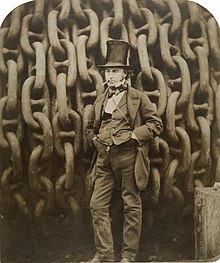Regulation

In many countries, engineering tasks such as the design of bridges, electric power plants, industrial equipment, machine design and chemical plants, must be approved by a licensed professional engineer. Most commonly titled professional engineer is a license to practice and is indicated with the use of post-nominal letters; PE or P.Eng. These are common in North America, as is European engineer (EUR ING) in Europe. The practice of engineering in the UK is not a regulated profession but the control of the titles of chartered engineer (CEng) and incorporated engineer (IEng) is regulated. These titles are protected by law and are subject to strict requirements defined by the Engineering Council UK. The title CEng is in use in much of the Commonwealth.
Many skilled and semi-skilled trades and engineering technicians in the UK call themselves engineers. A growing movement in the UK is to legally protect the title 'Engineer' so that only professional engineers can use it; a petition was started to further this cause.
In the United States, engineering is a regulated profession whose practice and practitioners are licensed and governed by law. Licensure is generally attainable through combination of education, pre-examination (Fundamentals of Engineering exam), examination (professional engineering exam), and engineering experience (typically in the area of 5+ years). Each state tests and licenses professional engineers. Currently, most states do not license by specific engineering discipline, but rather provide generalized licensure, and trust engineers to use professional judgment regarding their individual competencies; this is the favoured approach of the professional societies. Despite this, at least one of the examinations required by most states is actually focused on a particular discipline; candidates for licensure typically choose the category of examination which comes closest to their respective expertise. In the United States, an "industrial exemption" allows businesses to employ employees and call them an "engineer", as long as such individuals are under the direct supervision and control of the business entity and function internally related to manufacturing (manufactured parts) related to the business entity, or work internally within an exempt organization. Such person does not have the final authority to approve, or the ultimate responsibility for, engineering designs, plans, or specifications that are to be incorporated into fixed works, systems, or facilities on the property of others or made available to the public. These individuals are prohibited from offering engineering services directly to the public or other businesses, or engage in practice of engineering unless the business entity is registered with the state's board of engineering, and the practice is carried on or supervised directly only by engineers licensed to engage in the practice of engineering. In some instances, some positions, such as a “sanitation engineer”, does not have any basis in engineering sciences. Although some states require a BS degree in engineering accredited by the Engineering Accreditation Commission (EAC) of Accreditation Board of Engineering and Technology (ABET) with no exceptions, about two thirds of the states accept BS degrees in engineering technology accredited by the Engineering Technology Accreditation Commission (ETAC) of ABET to become licensed as professional engineers. Each state has different requirements on years of experience to take the Fundamentals of Engineering (FE) and Professional Engineering (PE) exams. A few states require a graduate MS in engineering to sit for the exams as further learning. After seven years of working after graduation, two years of responsibility for significant engineering work, continuous professional development, some highly qualified PEs are able to become International Professional Engineers Int(PE). These engineers must meet the highest level of professional competencies and this is a peer reviewed process. Once the IntPE title is awarded, the engineer can gain easier admission to national registers of a number of members jurisdictions for international practice.
In Canada, engineering is a self-regulated profession. The profession in each province is governed by its own engineering association. For instance, in the Province of British Columbia an engineering graduate with four or more years of post graduate experience in an engineering-related field and passing exams in ethics and law will need to be registered by the Association for Professional Engineers and Geoscientists (APEGBC) in order to become a Professional Engineer and be granted the professional designation of P.Eng allowing one to practice engineering.
In Continental Europe, Latin America, Turkey, and elsewhere the title is limited by law to people with an engineering degree and the use of the title by others is illegal. In Italy, the title is limited to people who hold an engineering degree, have passed a professional qualification examination (Esame di Stato) and are enrolled in the register of the local branch of National Associations of Engineers (a public body). In Portugal, professional engineer titles and accredited engineering degrees are regulated and certified by the Ordem dos Engenheiros. In the Czech Republic, the title "engineer" (Ing.) is given to people with a (masters) degree in chemistry, technology or economics for historical and traditional reasons. In Greece, the academic title of "Diploma Engineer" is awarded after completion of the five-year engineering study course and the title of "Certified Engineer" is awarded after completion of the four-year course of engineering studies at a Technological Educational Institute (TEI).
Comments
Post a Comment